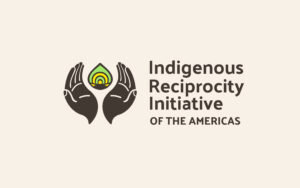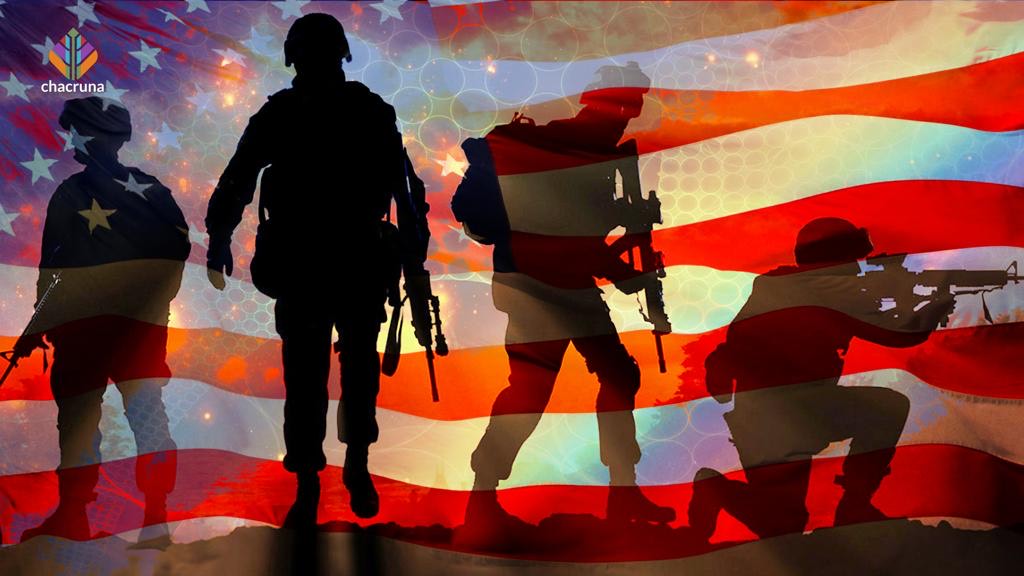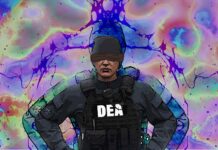Reason for Hope and the Veteran Mental Health Leadership Coalition’s Statement for the Record.
September 28, 2022
Chairman Takano, Ranking Member Bost, and Members of the Committee:
On behalf of Reason for Hope and the members of the recently formed Veteran Mental Health Leadership Coalition (VMHLC), thank you for the opportunity to share our views on the topic of increasing innovative approaches on Veteran suicide prevention.
My name is Martin R. Steele, and I am a retired Lieutenant General in the United States Marine Corps, retiring in August 1999 as Deputy Chief of Staff for Plans, Policies and Operations at Headquarters Marine Corps. I served on the VA Commission on Care during the Obama Administration, which explored the future of VA healthcare, and I recently completed my term as Vice Chairman of the Board of Veterans Florida. I have been privileged to testify in the past to this committee about Veterans’ mental health and suicide prevention.
OVER THE LAST SEVERAL YEARS, A SMALL GROUP OF VMHLC MEMBERS HAVE FUNDED AND SUPPORTED OVER 1,065 VETERANS TO RECEIVE PSYCHEDELIC-ASSISTED THERAPY OUTSIDE OUR NATION’S BORDERS.
Over the last several years, a small group of VMHLC members have funded and supported over 1,065 Veterans to receive psychedelic-assisted therapy outside our nation’s borders.1 I have been fortunate to work alongside an astonishing number of these Veterans, whose lives were not only saved from suicide by receiving this form of treatment, but who also found a renewed sense of purpose, meaning, and connection to themselves, their families, and their communities.2 However, we believe that it is morally unacceptable that Veterans who exhausted available options here at home should be forced to seek out this form of treatment in other countries.
Thus, Reason for Hope has worked for the last 18+ months with members of the VMHLC on various initiatives primarily to advance research and safe, affordable access for Veterans to MDMA- and psilocybin-assisted therapy within our nation’s borders. MDMA-assisted therapy for PTSD and psilocybin-assisted therapy for treatment-resistant depression and major depressive disorder have been granted Breakthrough Therapy designations by the FDA. Yet, no federal funding has been provided (from the VA or other federal departments or agencies) to support Veteran-focused studies exploring this form of innovative treatment.3 The existing research has been exclusively conducted with private and philanthropic funding.
Reason for Hope and the VMHLC have sought to fill this gap through several initiatives that seek to secure funding for research and free treatment for Veterans through FDA expanded access pilot programs for MDMA- and psilocybin-assisted therapy. For example, members of the VMHLC played a critical role in passing Texas HB 1802, which provides $2.4 million for a clinical trial of psilocybin for the treatment of Veterans with PTSD. Reason for Hope and the VMHLC also successfully led the passage of legislation in Connecticut this year establishing an innovative, first in the nation, pilot program for MDMA- and psilocybin-assisted therapy. This legislation is intended to fund the treatment of qualified Veterans, who exhausted available treatment options and are at-risk of suicide, to receive MDMA- or psilocybin-assisted therapy through the FDA’s expanded access program. We are currently making significant strides toward passing similar legislation in Pennsylvania, Florida, Illinois, Michigan, and New York. These initiatives should provide real-world data to inform program development and best practices for use of these treatments.
We have also taken steps to streamline access to these treatments following FDA approval. Reason for Hope has worked over the last year with the Department of Health and Human Services (HHS) toward establishing a dedicated interagency work group and public-private partnership with stakeholders. We hope this initiative results in federal guidelines that facilitate the implementation of these therapies in both medical and non-medical (i.e. sacramental) contexts. Additionally, we believe it is critical to fund and establish a system for coordinated real-world data collection and analysis to better inform safety, efficacy, and long-term outcomes for various conditions and populations.
WE BELIEVE IT IS CRITICAL TO FUND AND ESTABLISH A SYSTEM FOR COORDINATED REAL-WORLD DATA COLLECTION AND ANALYSIS TO BETTER INFORM SAFETY, EFFICACY, AND LONG-TERM OUTCOMES FOR VARIOUS CONDITIONS AND POPULATIONS.
We encourage the VA to establish its own psychedelic-assisted therapy Advisory Committee to prevent Veteran suicide, which should coordinate with the dedicated federal workgroup within HHS on program development and data collection. We also propose that the VA implement its own expanded access pilot program, facilitating access to MDMA- and psilocybin-assisted therapy for a small subset of Veterans who are at serious risk of suicide and have exhausted all other options. Such a program should enable clinicians and therapists already trained in these modalities and experienced through work in clinical trials to offer treatment under carefully monitored conditions. Further, this initiative provides a potentially critical life-saving mechanism for Veterans often screened out of available clinical trials due to suicidal ideation or prior attempts, or due to complex co-morbidities such as PTSD, depression, and substance use disorder.
An Urgent Crisis Justifying Immediate Action
The number of estimated daily Veteran suicides ranges from 16 to as many as 44, depending on the report.4 The precise number is impossible to determine, as there is no way to distinguish all deaths as intentional versus accidental or unintentional harm (e.g., death caused by automobile accidents, overdoses, falls, etc.). Nonetheless, the number of Veteran suicides continues to be incredibly concerning, with estimates showing that male Veterans of the U.S. military are two to three times as likely to die by suicide than their civilian counterparts, and female Veterans at even greater risk (six times the suicide rate that of female civilians).5
Further, deaths by suicide represent only the tip of the iceberg. For every person who dies by suicide, it is estimated that more than 30 others attempt suicide (estimate based only on reported attempts, and many go unreported/untreated), and many more still struggle with suicidal ideations (SI) and consider taking their own life.6 Even beyond the truly devastating impact of suicide-related mortality and disability associated with self-harming behavior including failed attempts for individuals and their loved ones, it is estimated that the economic and societal costs of suicide are well over $69 billion annually.7
THE UNFORTUNATE REALITY OF THE MENTAL HEALTH CRISIS HIGHLIGHTS THE LIMITATIONS OF EFFECTIVE PHARMACOLOGIC TREATMENTS AND THERAPIES IN OUR TOOLBOX FOR STRESS AND TRAUMA-RELATED CONCERNS SUCH AS PTSD, DEPRESSION, AND SUICIDALITY.
The unfortunate reality of the mental health crisis highlights the limitations of effective pharmacologic treatments and therapies in our toolbox for stress and trauma-related concerns such as PTSD, depression, and suicidality. There are only two FDA-approved medications indicated for PTSD, both selective serotonin reuptake inhibitors (SSRIs) and the landscape of effective treatment is even bleaker for suicidal thoughts and behaviors. Though these traditional medications work (at least temporarily) for a restricted population, they have significant limitations and side effects.8 The rates of non-response or partial response to these medications among combat-exposed individuals, particularly those with chronic PTSD, are comparable or worse to those of civilian patient populations.9 Further, even when traditionally available SSRIs are effective, they are slow-acting antidepressants with a delayed onset of action, meaning it can take weeks to months before patients experience clinical benefit. This latency period is decidedly troubling, as it significantly increases the risk for suicide and self-harm as well as for self-medication with drugs and alcohol.10
There is urgent need to investigate novel therapeutics with potential to offer relief and healing to individuals who have been failed by current treatments, especially those which can offer rapid and robust improvements. Mounting evidence suggests fast-acting therapeutics like MDMA and psilocybin, which rapidly promote structural and functional neural plasticity, have great potential to provide this level of improvement.11 Research, being conducted at premier academic institutions in the US and across the world suggests these medicines work more rapidly and robustly than traditionally available treatments, with generally fewer concerning side effects and low risk for abuse.12

Discover the Indigenous Reciprocity Initiative of the Americas
Beyond MDMA and psilocybin, many Veterans (particularly within the Special Operations Forces community) have been successfully treated at The Mission Within, a clinic on the outskirts of Tijuana, Mexico, with a combination therapy of ibogaine and 5-MeO-DMT.13 Although small in size, studies published on the retrospective outcomes of 65 Special Operations Forces Veterans treated with this ibogaine and 5-MeO-DMT protocol demonstrated significant and very large reductions in the retrospective report of suicidal ideation, cognitive impairment, and symptoms of posttraumatic stress disorder, depression, and anxiety. Most participants rated the psychedelic experiences as one of the top five personally meaningful (84%), spiritually significant (88%), and psychologically insightful (86%) experiences of their lives.14
We believe based on the available evidence (both quantitative and qualitative) that psychedelic-assisted therapies offer relief and healing for Veterans suffering when used safely, ethically, responsibly, and in the right setting. We urge the VA to join us in this lifesaving initiative.
Recommendations
We recommend the following actions be taken in a coordinated and integrated manner to prevent Veteran suicides:
1) Establish within three (3) months a formal VA Advisory Committee on psychedelic-assisted therapy, which should include a broad and diverse mix of VA stakeholders and community partners with the necessary expertise (we are happy to offer up the expertise of the VMHLC’s member organizations and Advisory Board members),15 who can collaboratively inform the funding and development of optimal research strategies, program development, and treatment implementation moving forward. The Advisory Committee, within three (3) months of its establishment, should provide a report outlining the funding it believes necessary for the research and pilot program development, implementation, monitoring, and oversight costs.
2) Establish, within 12 months, an FDA-approved expanded access pilot program for MDMA- and psilocybin-assisted therapy for a limited subset of patients who exhausted available treatment options and who are at risk of suicide, with funding for real-world data collection and analysis. Such a program should include at least five (5) specially designated regional facilities throughout the country.
3) Fund and implement, within 12 months, research focused on the following:
i) MDMA, psilocybin, and combination therapies utilizing both;
ii) ibogaine, 5-MeO-DMT, and combination therapies utilizing both;
iii) psychedelic-assisted therapy protocols involving group therapy, evidence-based/gold standard therapies, and use of peer support specialists to reduce the burden on licensed providers; and
iv) protocols that include and treat, rather than exclude, Veterans with suicidal ideation or prior attempts.
Again, thank you for the opportunity to submit this statement for the record on behalf of Reason for Hope, the Veteran Mental Health Coalition, and the thousands of Veterans who may benefit from access to these innovative therapies. If you or your staff have questions and/or feedback or would like to meet with our team to learn more, please contact me or our Executive Director, Brett Waters, at brett [at] reason-for-hope.org.

Martin R. Steele
Lieutenant General, US Marine Corps (Retired)
Chief Executive Officer
Reason for Hope
Read previous article by the author and his colleagues here: “Letters in Support of the Right to Try Clarification Act and an Inter-agency Taskforce on Psychedelic Medicines and Therapies“
Notes
1 https://www.booker.senate.gov/imo/media/doc/vmhlc.pdf
2 See, e.g., the Connecticut Public Health Committee testimony of Marcus and Amber Capone, co-founders of Veterans Exploring Treatment Solutions, Jesse Gould, founder of Heroic Hearts Project, and Allison Wilson, founder of the Hope Project, in support of Connecticut HB 5396, available at https://www.cga.ct.gov/asp/menu/CommDocTmyBillAllComm.asp?bill=HB-05396&doc_year=2022.
3 An FDA Breakthrough Therapy Designation is a “process designed to expedite the development and review of drugs that are intended to treat a serious condition and preliminary clinical evidence indicates that the drug may demonstrate substantial improvement over available therapy on a clinically significant endpoint(s).” https://www.fda.gov/patients/fast-track-breakthrough-therapy-accelerated-approval-priorityreview/
5 Prevention, O. o. M. H. a. S. Suicide Among Veterans and Other Americans 2001-2014. (2017).
6 Prevention, A. F. f. S. Suicide Statistics <https://afsp.org/about-suicide/suicide-statistics/> (2018).
7 Prevention, A. F. f. S. Suicide Statistics <https://afsp.org/about-suicide/suicide-statistics/> (2018); Prevention, A. F. o. S. Suicide Statistics, 2016. (2016).
8 Averill, L.A., et al., Chronic stress pathology and ketamine-induced alterations in functional connectivity in major depressive disorder: An abridged review of the clinical evidence. Adv Pharmacol,2020. 89: p. 163-194.
9 Friedman, M. J., Marmar, C. R., Baker, D. G., Sikes, C. R. & Farfel, G. M. Randomized, double-blind comparison of sertraline and placebo for posttraumatic stress disorder in a Department of Veterans Affairs setting. The Journal of clinical psychiatry 68, 711-720 (2007); Watts, B. V. et al. Meta-analysis of the efficacy of treatments for posttraumatic stress disorder. The Journal of clinical psychiatry 74, e541-550 (2013). https://doi.org:10.4088/JCP.12r08225
10 Abdallah, C. G., Averill, L. A. & Krystal, J. H. Ketamine as a promising prototype for a new generation of rapid-acting antidepressants. Ann N Y Acad Sci 1344, 66-77 (2015). https://doi.org:10.1111/nyas.12718.
11 Krediet, E., et al., Reviewing the Potential of Psychedelics for the Treatment of PTSD. Int J Neuropsychopharmacol, 2020. 23(6): p. 385-400; Shao, L.X., et al., Psilocybin induces rapid and persistent growth of dendritic spines in frontal cortex in vivo. Neuron, 2021. 109(16): p. 2535-2544.e4.
12 Mitchell, J.M., Bogenschutz, M., Lilienstein, A. et al. MDMA-assisted therapy for severe PTSD: a randomized, double-blind, placebo-controlled phase 3 study. Nat Med 27, 1025–1033 (2021). https://doi.org/10.1038/s41591-021-01336-3; Davis AK, Barrett FS, May DG, et al. Effects of Psilocybin-Assisted Therapy on Major Depressive Disorder: A Randomized Clinical Trial. JAMA Psychiatry. 2021;78(5):481–489. doi:10.1001/jamapsychiatry.2020.3285
13 https://www.booker.senate.gov/imo/media/doc/vmhlc.pdf
14 Davis AK, Averill LA, Sepeda ND, Barsuglia JP, Amoroso T. Psychedelic Treatment for Trauma-Related Psychological and Cognitive Impairment Among US Special Operations Forces Veterans. Chronic Stress. 2020;4. doi:10.1177/2470547020939564
15 https://www.booker.senate.gov/imo/media/doc/vmhlc.pdf
Art by Mariom Luna
Take a minute to browse our stock:
Did you enjoy reading this article?
Please support Chacruna's work by donating to us. We are an independent organization and we offer free education and advocacy for psychedelic plant medicines. We are a team of dedicated volunteers!
Can you help Chacruna advance cultural understanding around these substances?
















